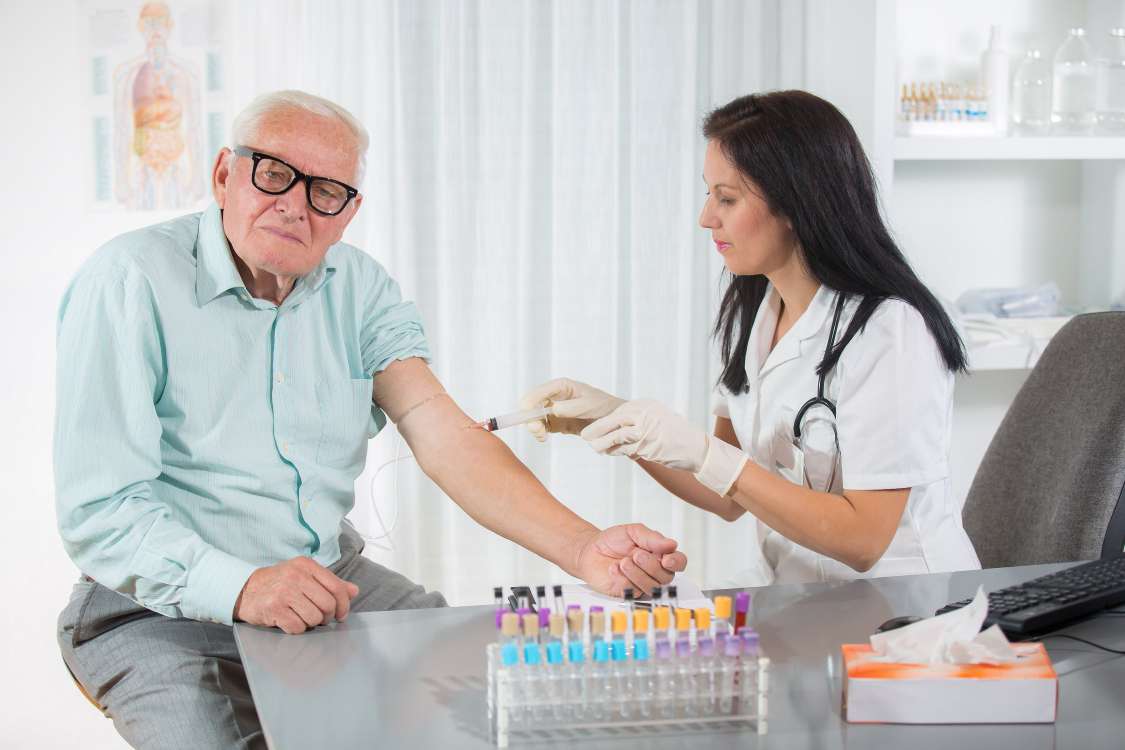Almost 6 million Americans are living with Alzheimer’s disease, according to the Alzheimer’s Association. In Florida alone, the condition affects more than 530,000 residents — a number that’s only expected to grow.
By 2025, the Alzheimer’s Association predicts the number of people in the state experiencing symptoms of Alzheimer’s will increase by more than 30% to 720,000 Floridians.
As the number of Alzheimer’s diagnoses increases, so do the efforts of researchers and scientists who are actively looking for ways to prevent, detect and better treat the disease.
The Challenges of Developing Alzheimer’s Treatments
There is currently no cure for Alzheimer’s disease. While this is a goal for many research teams, multiple factors make it a hard one to achieve.
For one, scientists are still working to identify and understand exactly how Alzheimer’s affects the brain, according to the Alzheimer’s Association.
And because the disease usually develops slowly, with the Mayo Clinic reporting some people experiencing symptoms for more than a decade, it can take a long time to tell whether an experimental treatment is effective in slowing or even stalling the disease’s progression.
Fortunately, many Alzheimer’s researchers in Florida and around the world refuse to let challenges like these stand in their way.
Alzheimer’s Prevention Efforts

In July 2019, scientists from more than 70 countries gathered in Los Angeles to attend the Alzheimer’s Association International Conference, billed as the largest and most influential international meeting dedicated to advancing dementia science.
More than 220 abstracts describing Alzheimer’s clinical trials and studies were presented, according to the South Florida Sun-Sentinel, including submissions by seven researchers based in Florida.
Several of the Alzheimer’s investigational trials and treatments presented showed promising results, including:
- A blood test that could help doctors detect Alzheimer’s early in the disease’s progression
- Anti-inflammatory drug therapy that reduces or prevents plaque buildup in the brain
- An intranasal insulin-delivery device that may help improve memory and cognitive skills
Keith Gibson, director of program services for the Alzheimer’s Association Southeast Florida Chapter told the Sun-Sentinel the majority of clinical trials being conducted today are focused on slowing or preventing the disease’s progression.
“That’s why it’s important to catch cognitive decline early and start managing it,” he said in a recent article.
Florida Alzheimer’s Studies
Before the Los Angeles convention, many of Florida state’s top Alzheimer’s researchers met in South Florida to present their work at a conference, according to the Sun-Sentinel. They included:
- Dr. Shanna Burke, assistant professor at the Robert Stempel College of Public Health and Social Work at Florida International University, who is investigating whether depression, anxiety, insomnia or sleep apnea affect the brain and put one at risk for developing Alzheimer’s.
- Dr. Margaret Pericak-Vance, from the University of Miami, who is working to identify the genetic risk factors for Alzheimer’s in African-American, Hispanic, Peruvian and Puerto Rican trial participants.
- Dr. Jason Richardson, associate dean of research in the Robert Stempel College of Public Health and Social Work at FIU, who is attempting to better understand how the interaction between someone’s genes and environment affects their likelihood of developing Alzheimer’s disease.
- Dr. Jeffery Vance, of the University of Miami, who is studying stem cells and donor brains to uncover which genes and/or behaviors decrease one’s risk of developing Alzheimer’s disease.
Alzheimer’s Clinical Trials in Florida
Much of the efforts to develop better treatments — and maybe even a cure — for Alzheimer’s start with clinical trials. But finding volunteers to participate in these trials isn’t easy, according to the Alzheimer’s Association.
If you or your loved one are interested in contributing to these efforts, the Alzheimer’s Association TrialMatch maintains a list of 250-plus pharmacological and non-pharmacological studies being conducted around the country and online.
Other local and national resources for Alzheimer’s clinical trials include:
- The University of South Florida’s Morsani College of Medicine Byrd Alzheimer’s Center and Research Institute
- The National Institute on Aging
- The U.S. National Library of Medicine
At Sonata Senior Living, our dementia-certified Florida memory care communities incorporate the latest advancements in Alzheimer’s and dementia research to help all of our residents experience less stress and anxiety and enjoy a higher quality of life.
To learn more, call a community near you today or schedule a visit →
